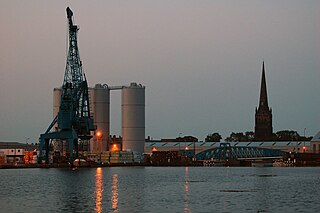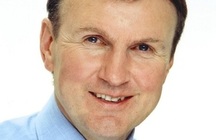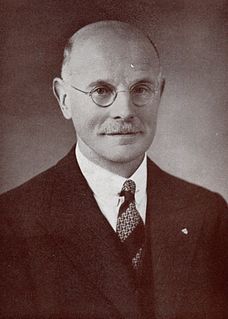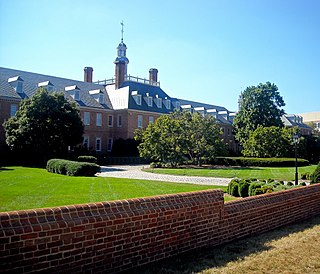Related Research Articles

Imperial Chemical Industries (ICI) was a British chemical company. It was, for much of its history, the largest manufacturer in Britain. It was formed by the merger of four leading British chemical companies in 1926. Its headquarters were at Millbank in London. ICI was a constituent of the FT 30 and later the FTSE 100 indices.

Goole is a port town and civil parish on the River Ouse in the East Riding of Yorkshire, England. The town's historic county is the West Riding of Yorkshire.

Humberside was a non-metropolitan and ceremonial county in Northern England from 1 April 1974 until 1 April 1996. It was composed of land from either side of the Humber Estuary, created from portions of the East Riding of Yorkshire, West Riding of Yorkshire, and the northern part of Lindsey, Lincolnshire. The county council's headquarters was County Hall at Beverley, inherited from East Riding County Council. Its largest settlement and only city was Kingston upon Hull. Other notable towns included Goole, Beverley, Scunthorpe, Grimsby, Cleethorpes and Bridlington. The county stretched from Wold Newton in its northern tip to a different Wold Newton at its most southern point.

Archibald John Norman is a British businessman and politician. He is the only person to have been chairman of an FTSE 100 company and a Member of the House of Commons (MP) at the same time. From January 2010 to January 2016, Norman was the chairman of ITV plc. He succeeded Robert Swannell as chairman of Marks & Spencer in September 2017.
Fred, Frederic, or Frederick Smith may refer to:
The National Enterprise Board (NEB) was a United Kingdom government body. It was set up in 1975 by the Labour government of Harold Wilson, to support the government's interventionist approach to industry. In 1981 the Conservative government of Margaret Thatcher, combined the NEB with the National Research Development Corporation (NRDC) to form the British Technology Group.

The Federal Home Loan Mortgage Corporation (FHLMC), commonly known as Freddie Mac, is a publicly traded, government-sponsored enterprise (GSE), headquartered in Tysons Corner, Virginia. The FHLMC was created in 1970 to expand the secondary market for mortgages in the US. Along with the Federal National Mortgage Association, Freddie Mac buys mortgages, pools them, and sells them as a mortgage-backed security (MBS) to private investors on the open market. This secondary mortgage market increases the supply of money available for mortgage lending and increases the money available for new home purchases. The name "Freddie Mac" is a variant of the FHLMC initialism of the company's full name that was adopted officially for ease of identification.

David Ivor Young, Baron Young of Graffham, is a British Conservative Party politician, former cabinet minister and businessman.
Sir Kenneth Duncan Morrison CBE was an English businessman, Life President, and former chairman of Morrisons, the fourth largest supermarket group in the United Kingdom. He was the son of William Morrison, who founded the company.

Croda International plc is a British speciality chemicals company based at Snaith, England. It is listed on the London Stock Exchange.

Sir John William Laing was a British entrepreneur in the construction industry. He inherited his father's building business – which is now known as John Laing Group – in the early 1900s.

In September 2008 the Federal Housing Finance Agency (FHFA) announced that it would take over the Federal National Mortgage Association and the Federal Home Loan Mortgage Corporation. Both government-sponsored enterprises, which finance home mortgages in the United States by issuing bonds, had become illiquid as the market for those bonds collapsed in the subprime mortgage crisis. The FHFA established conservatorships in which each enterprise's management works under the FHFA's direction to reduce losses and to develop a new operating structure that will allow a return to self-management.
Timothy David Dalton Philips is an Irish businessman. He was the CEO of the UK supermarket chain Morrisons from January 2010 until March 2015, when he was succeeded by David Potts. He is currently the chief executive of daa, the Irish state-owned global airports and travel retail group which runs Dublin and Cork airports.

Andrew Theakstone Percy is a British Conservative Party politician. He was elected Member of Parliament for Brigg and Goole in 2010 and is an active member of many groups in Parliament including All Party Parliamentary Groups on Financial Education for Young People, Yorkshire and Northern Lincolnshire as well as being a member of the anti-European Union Better Off Out Group.
The Great Recession in the United States was a severe financial crisis combined with a deep recession. While the recession officially lasted from December 2007 to June 2009, it took many years for the economy to recover to pre-crisis levels of employment and output. This slow recovery was due in part to households and financial institutions paying off debts accumulated in the years preceding the crisis along with restrained government spending following initial stimulus efforts. It followed the bursting of the housing bubble, the housing market correction and subprime mortgage crisis.

Satya Narayana Nadella is an Indian American business executive. He is the executive chairman and CEO of Microsoft, succeeding Steve Ballmer in 2014 as CEO and John W. Thompson in 2021 as chairman. Before becoming CEO, he was the executive vice president of Microsoft's cloud and enterprise group, responsible for building and running the company's computing platforms.

Principle Group is an international brand implementation company headquartered in Huddersfield, UK, with offices in the USA, Mexico, Germany, France, Italy, Brazil, China, Japan, Russia, South Africa, Australia and India.

DWF is a global legal business headquartered in Manchester with 31 offices across the world. In March 2019, DWF was listed on the London Stock Exchange. With a £366m valuation and offer size of £95m, DWF became the UK’s largest listed law firm.

John Storey Barwick, 1st Baronet of Ashbrooke Grange, J.P., (1840–1915), was an English industrialist involved within quarries, coal-mining, shipping and shipbuilding concerns. He was founder of Easington Colliery in 1899 then known as The Easington Coal Company Limited a privately owned company of which he was chairman. Barwick was made first baronet of Ashbrooke Grange in 1912.
References
- 1 2 "Timeline". Croda International. Retrieved 20 September 2014.
- 1 2 "Our History". Croda International. Archived from the original on 2 April 2014. Retrieved 20 September 2014.
- 1 2 "Sir Frederick Wood". The Telegraph. 20 March 2003. Retrieved 20 September 2014.
- ↑ "Sir Freddie Wood (1926-2003)". The Meister. Retrieved 20 September 2014.
- ↑ "Sir Freddie Wood". The Guardian. 24 March 2003. Retrieved 20 September 2014.
- ↑ "Records". University of Southampton. Retrieved 20 September 2014.